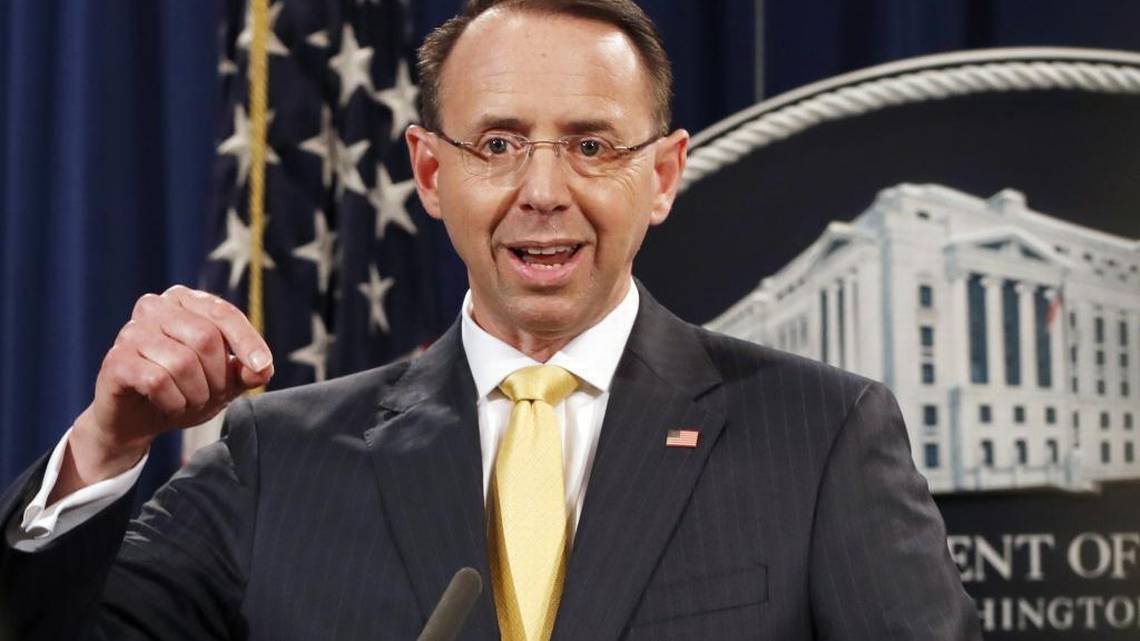
Deputy Attorney General Rod Rosenstein, speaks to the media with an announcement that the office of special counsel Robert Mueller says a grand jury has charged 13 Russian nationals and several Russian entities, Friday, Feb. 16, 2018, in Washington. The defendants are accused of violating U.S. criminal laws to interfere with American elections and the political process. Jacquelyn Martin-AP
South Caroilna's two major universities say they were not affected by a far-reaching Iranian hacking campaign that targeted roughly 50,000 American university professors since 2013.
“Clemson, like a large number of research universities across the country, was notified by the Department of Justice that our network users were subjected to phishing attacks," spokesman Mark Land said in an emailed statement. "After a thorough review by the university’s information technology organization, we found no evidence that those attacks resulted in any improper access of Clemson’s network resources.”
University of South Carolina was also unaffected by the hacking scheme, spokesman Jeff Stensland said in an email.
The alleged hacking campaign, coordinated by nine Iranian citizens, sought to steal research primarily from American universities, but also breached computers at several law enforcement agencies, private sector companies and non-governmental organizations, according to a federal indictment filed Friday.
In a statement, the U.S. Attorney for southern New York, Geoffrey Berman, called it "one of the largest state-sponsored hacking campaigns ever prosecuted by the Department of Justice."
The stolen information was worth roughly $3.4 billion, the indictment alleges.
Though the nine Iranians accused of coordinating the cyberattack worked for the Mabna Institute, an Iranian government contractor, the indictment holds responsible the Iranian government. "The defendants conducted this activity at the behest of the government of Iran, specifically the Islamic Revolutionary Guard Corps, which is one of several entities within the government of Iran responsible for gathering intelligence," the indictment said.
If the nine Iranians are arrested, tried and convicted, they could each face a maximum of 77 years in prison on the charges, which include wire fraud and aggravated identity theft.
The hacking campaign didn't just target America. An additional 50,000 professors at 170 universities in 21 other countries were also targeted, according to the indictment. Around 8,000 professors worldwide were successfully hacked.
That's only 8 percent of those targeted, but the hackers were allegedly able to steal 31 terabytes of data, which is enough data to fill 121, high-capacity iPhone Xs.
The hackers allegedly carried out the hacking using a tactic known as "spearphishing." Hackers allegedly researched professors by looking at their online profiles, research interests and published articles. They then sent professors "customized" emails that tricked them into clicking on a link that would take them to a malicious website designed to look exactly like their university's website. The professors would then enter their login name and password, thus handing them over to hackers, the indictment said.
src

Hi! I am a robot. I just upvoted you! I found similar content that readers might be interested in:
http://www.thestate.com/news/nation-world/article206816049.html
Downvoting a post can decrease pending rewards and make it less visible. Common reasons:
Submit